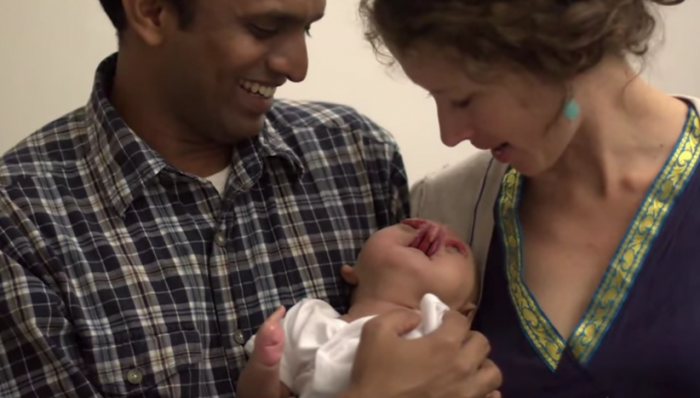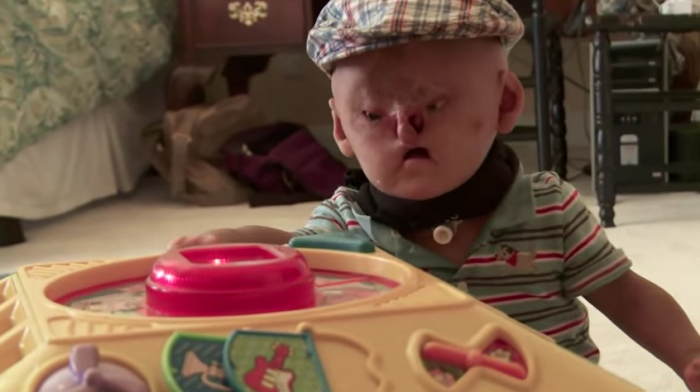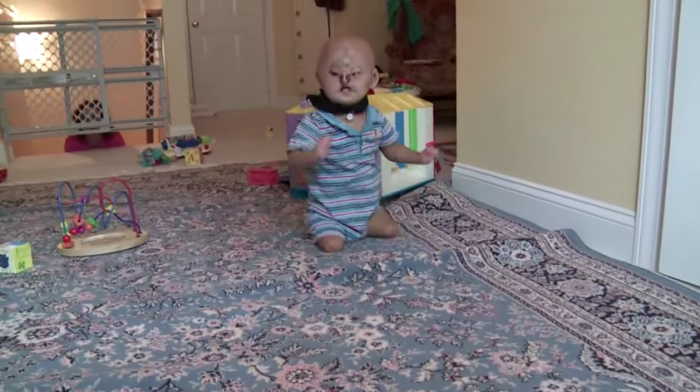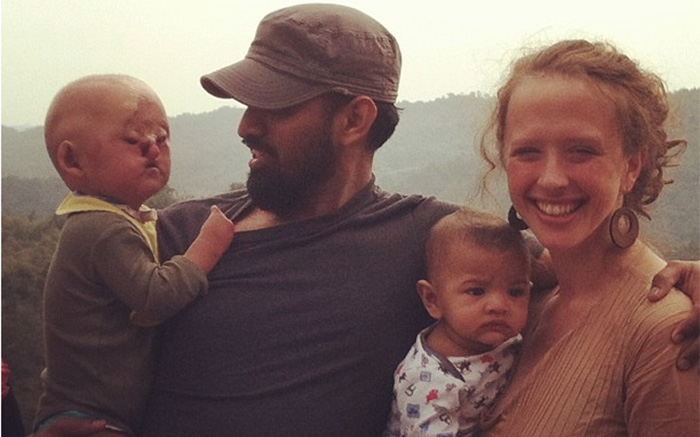Update 1/27/2021: Adam passed away on June 12, 2016, after contracting Adenovirus. “Our little bird met his Maker and Sustainer…the Shepherd of his soul early this morning,” wrote his mother on Facebook. “There was incredible peace that enveloped his fragile, swollen body. He will be missed by so many. It’s indescribable to explain this ache. Yet to imagine his body restored and to imagine him surrounded by glory and welcomed by his Father…it’s a pretty good balm to our weary souls.”
2/9/2016: When Adam was born just over four years ago in India, he was immediately abandoned by his birth parents. Born with severe physical deformities, including a cleft lip and palate, no eyelids, no nose, fused legs, and hand abnormalities, he was considered a curse, and his parents threatened to kill him if they were forced to bring him back to their village. So Adam stayed in the hospital, but it was the same hospital where his soon-to-be parents whom he had yet to meet, happened to be working.
Adam was diagnosed with Bartsocias-Papas, a rare condition from which most die while in the womb or shortly after birth. Raja Paulraj, a psychiatrist, and Jessica Cooksey Paulraj, a nurse, had only been married for six months when Adam was born. Yet, when they heard about the abandoned baby boy, they went to see him; and though they were told he may not live more than a few weeks, they adopted him.


Friends back in the United States were able to connect the new parents with specialists at UNC hospitals who were able to help change Adam’s fate. Since then, he’s had surgery to build eyelids and protect his vision, surgeries to fix his cleft lip and give him a palate that allows him to eat food. In June, he had surgery to remove cysts from his ears and nose in addition to placing a tube in one of his ears.
But his life isn’t all about surgeries and hospitals. Since his adoption he has also become the big brother to two little brothers. Since his palate surgery, Adam has become vocal and loves to laugh. He has also learned to hop on his two legs and prefers that method of travel to crawling. He goes on hikes with his family.

We are often quick to assume that when people, especially children, are faced with medical challenges, that their suffering overwhelms any ability to experience joy in their lives. Adam proves that theory wrong. His mother Jessica writes that though they spend many nights praying for Adam, and many days in the hospital looking for answers and healing for him, their life is not a constant suffering. She has an adventurous spirit, and Adam’s health and diagnosis may change how they find adventure as a family, but it doesn’t stop them from seeking it out, and it certainly doesn’t change the value of their lives. She writes:
[…] when I have an eternal perspective, convenience loses its meaning. Because convenience infers that I need ease and my preference in order to live an enjoyed life. So having a child whose needs may limit my convenience may infer that I am suffering. How can I check off a bucket list of dreams and ambitions and sights to be seen when I have a child who cannot walk and who needs sponge bathing and dressing changes every night?
[…] If anything, [Adam’s disability] enables us to see HIS (meaning God) ability to make beauty in the midst of brokenness.
While Adam’s health condition sometimes means the young family is in the hospital when they’d rather be at home or off traveling, their lives are filled with beauty. Suffering does not kill joy, it enhances it.

There are times, of course, when Jessica says she feels compelled to prove to others that Adam deserves his own life. For instance, there was the time a good friend brought someone new to their home, someone who had never met Adam before. Though Adam wasn’t feeling well, Jessica desperately wanted this new person to see that Adam’s life holds value and purpose. She wanted, like any mother, all of her children to sit nicely at the table and behave throughout dinner. But like most families with small children, a calm mealtime is not usually in the cards.
After realizing that Adam just wasn’t feeling well enough to be at the table with everyone, and was happy to curl up on the cool tile floor, Jessica began to let go of that desire to prove Adam’s worth. She realized that if her other children were sick she wouldn’t force them to sit at the table and showcase their value.
“Adam has no need to justify his existence,” she writes. “His existence is justified because He was made by a Holy God. And made in His image, despite all the flaws our human eyes see. […] I long for people to know all the cool things Adam can do, instead of letting them know that Adam is the cool thing. His life is a living breathing miracle simply because God breathed life into his lungs.”
How do we so often miss this? How do we so easily forget that there’s a bigger picture?
Adam, and his family, prove that every single one of us has value simple because we do. We are all created equal, no matter our abilities or disabilities or medical needs. Our differences, our personalities, our struggles, and our triumphs are just pieces of our lives. They don’t determine how valuable we are. They don’t make us more or less important than anyone else, and our sufferings don’t make our joys any less enjoyable.
There is no need to justify to anyone why any preborn person has the right to live. There is no need to prove that people with Down syndrome can contribute to society, even though they can and do. There is no need for any child, born or preborn, to have to justify their existence. Adam is telling us all that despite everything that we think defines us and our value, our lives are worthy of living.







